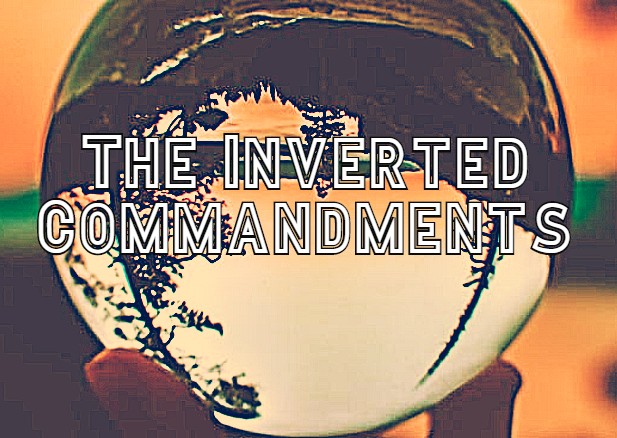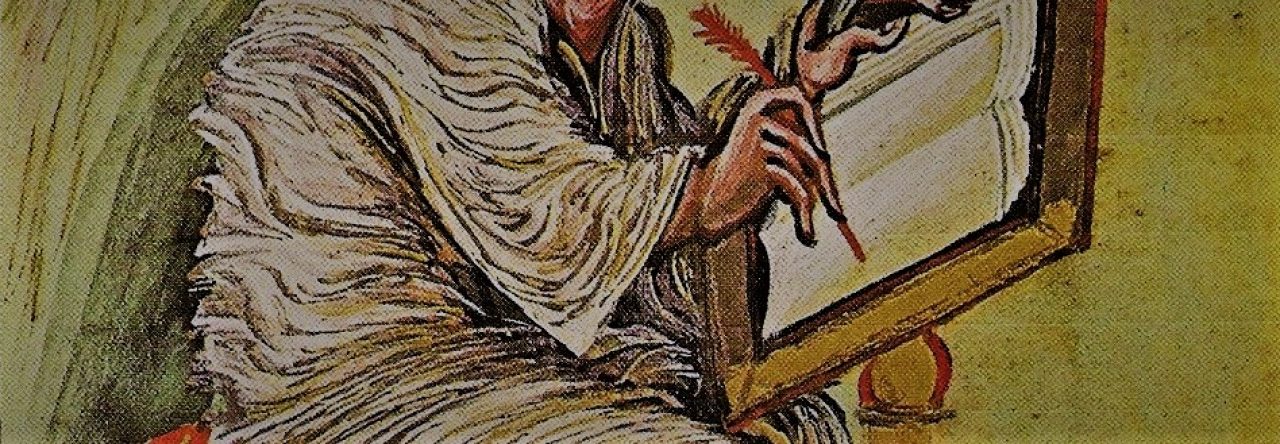“Thou shalt love the Lord your God with all thy heart, and with all they soul, and with all thy mind. This is the first and greatest commandment. And the second is like it, thou shalt love thy neighbor as thyself. On these two commandments hang all the law and the prophets” (Matt. 22:37-40).
The well known Russian priest, Fr. Andrey Tkachev, comments, “Christians have two commandments, the first is to love God and the second is love for neighbor. It is essential to love God first. Primary is love for God. We start from love for God. It is not love for neighbor that is first but love for God. What is Communism? It is the full liquidation of the first commandment. They say, ‘you don’t have to love God but you must love your neighbor. We will do away with the first commandment and yet leave the second and thereby we will build paradise on earth. Yet, in reality, all you ever get from this is the gulag.”
Secularism is an inversion of Christianity. It seeks to deny Divine revelation while retaining principles and paradigms that are firmly contingent thereon. Mankind may only find fullness and purpose when it is first and foremost setting the things of God as primary and of most importance.

Nothing of benefit can come when the holy things are sacrificed in the name of care for neighbor. True Christian love for neighbor is to love God and His Kingdom above all else.
Our physical existence is fleeting. Rich or poor, healthy or sick, every person will depart this physical life and enter more completely into eternity. Thus, true Christian love is to hold fast to the clear revelation of Truth whereby persons may be above all else, “born from above.” If we as Christians are living in this rebirth then, whatever our current physical state, we will inherit eternal life. This Life is not dependent on this passing corruptible existence. In fact, Christians are called to be ready and willing to lose this life for the sake of Christ and so to find true life (cf. Matt. 16:24ff). That is, if we must sacrifice health and monetary stability for the things of God, it is well worth it. And yes, even expected of a Christian.
Always that which is of God, and love for it, is set as the uttermost vocation of Mankind.
For, even if all the ills of this world were eradicated in this passing existence, what good would that be if we lose the Kingdom of Heaven? But we know men will never create “paradise,” though they labor to do so. As stated above man’s attempt to build a paradise without God ends in a gulag.
As Fr. Tkachev warns, when we accept the secular inversion of putting physical well-being above spiritual, we are accepting the anti-logic of this age.
Many holy men and women who suffered in the past century under the various secular “paradises” warn Christians, us, of the perils of placing purported “love for neighbor,” above “love for God.”
Such a voice is Archbishop Andrey of Novo-Diveyevo, of blessed memory. He was born in Russian and at some point fled after the Communist take over in the early 20th century. He eventually came to America where he passed away. He has these sober words to say, we would do well to listen. Although he is addressing “Russian” Orthodox in America, the principles he elaborates apply to all.
“In America there is no Stalin, no Communism, no persecutions against the Church. Therefore, emigrants who do not know actual spiritual life might think that Orthodox life in America should be an ideal of Orthodox life and that one should live just as the old Russian emigrants live here. But have our Russian emigrants found here what is the true ideal of the Christian—godliness, the acquisition of peace of heart through repentance? Have they found that elemental reality which the Church should be and with which a man departs into eternal life—sanctity, purity, sobriety?
Alas, it seems to me that the life not only of non-Orthodox Americans, but of Orthodox Russians as well, proceeds not according to the laws of the Church, but according to the principles of humanism. Very many of those who consider themselves Orthodox are actually Christians only in form, but they live according to their own understanding, complying only with the commands of their flesh. American life, with its satiety and comfort, acts extraordinarily in favor of the acceptance of humanism. And therefore it is not astonishing that laymen often make demands to their pastors to go “in step with the times,” and the pastors often fulfill these demands ….”
Humanism, sets as primary physical existence. It will do anything to preserve it. Sadly, even in the Blessed Archbishop’s time, many Orthodox were willing to compromise the Holy things of God so as to preserve fleshly comforts and well-being.
He continues, “But the religious-moral foundations do not change; why, then, should priests change? Against contemporary man the same temptations, the same passions and seductions battle that tempted men a thousand years ago. Sin remains sin forever, and not a jot or tittle of the law of Christ changes: ‘Heaven and earth will pass away, but my words shall not pass away. Seek ye first the Kingdom of God and its righteousness, and all else will be added unto you.’ The most important thing is to create a pure heart and keep it that way.”
And he makes this sobering observation, “Our church life proceeds for the most part outwardly; inward life is being forgotten. The slogan of humanism in our times is again: ‘Appear to be a Christian, but live according to the laws of the flesh.'”
How then do we guard our hearts from the counterfeit “love of neighbor” (which many times is just a pretty mask to cover our self-love) that secular humanism promotes as the new gospel? A “love” which asks, and justifies, that the things of God be sacrificed for the “well-being” of humanity.
The Godly Archbishop has this advice for us, “The dogmas of faith, faith itself is revealed to us, and none of us doubts it; but the confession of faith must be in godliness. ‘No one is good save God alone’—this is to hold what is God’s in honor. It is the Divine that must be our concern; it must enter into all sides of our life—personal, family, public … Live in such away that what is God’s will be in honor; and the first, the chief thing is your mind, which must be in God.”
To truly love our neighbor we must first and foremost guard and hold fast to that which is God’s. When we love Him above all else and hold what is of Him in the highest honor, then we will truly love our neighbor. But never can we say we love our neighbor by compromising the things that are of God. For by doing so we are in reality hating our neighbor. For without deep faith in God and His holy things, how can men be saved?

Father bless.
Fr. Lynch-
Crazy- Solzhenitsyn wrote this nearly 40 years ago….prophetic …Webster too.
Father bless.
John
“As a survivor of the Communist Holocaust I am horrified to witness how my beloved America, my adopted country, is gradually being transformed into a secularist and atheistic utopia, where communist ideals are glorified and promoted, while Judeo-Christian values and morality are ridiculed and increasingly eradicated from the public and social consciousness of our nation. Under the decades-long assault and militant radicalism of many so-called “liberal” and “progressive” elites, God has been progressively erased from our public and educational institutions, to be replaced with all manner of delusion, perversion, corruption, violence, decadence, and insanity.
It is no coincidence that as Marxist ideologies and secularist principles engulf the culture and pervert mainstream thinking, individual freedoms and liberties are rapidly disappearing. As a consequence, Americans feel increasingly more powerless and subjugated by some of the most radical and hypocritical, least democratic, and characterless individuals our society has ever produced.” – Alexander Solzhenitsyn; Templeton Prize Lecture, 10 May 1983 https://www.nationalreview.com/2018/12/aleksandr-solzhenitsyn-men-have-forgotten-god-speech/
“If we and our posterity…live always in the fear of God and shall respect His Commandments…we may have the highest hopes of the future fortunes of our country…. But if we…neglect religious instruction and authority; violate the rules of eternal justice, trifle with the injunctions of morality, and recklessly destroy the constitution which holds us together, no man can tell how sudden a catastrophe may overwhelm us and bury all our glory in profound obscurity.” (Daniel Webster, Address to the New York Historical Society, 1852)
LikeLiked by 2 people
I cannot remember where I saw it, but an article had mentioned that formal & informal studies show that about a 1/3 of Orthodox have not returned to Church after the Covid shutdown.
Our parish numbers are similar.
What’s strange to me is that I felt a burning desire to return & nothing was going to hold me back from attending as much as possible once the bishop released us.
It actually radically deepened my own faith.
God willing, those remaining will provide a base to make the Church stronger & more vibrant. We’ll have a muscle memory of what we temporarily lost etched in our minds & double down on our efforts to live a truly Orthodox life every day, not just for a couple hours on Sunday.
LikeLiked by 1 person
I would be curious to know the reasons why people have not returned to their parishes. In my own parish, the restrictions are so strict that emails have been sent out scolding people for gathering under awnings outside. Between that and the impieties regarding Holy Communion, my family has not been back. I know we are not alone in not returning for those reasons.
LikeLike
Father bless.Thank you for these word.Thomas a sinner
Sent from Yahoo Mail on Android
LikeLike
The closure of the churches was a betrayal; many felt this on some level, and for some, it constituted a loss of faith. As I once told my priest, “I used to think you guys took this stuff seriously”. It was like a lifeline was cut; even when I wasn’t in church, I knew prayers were being offered, and that there was an uninterrupted link to Heaven.
LikeLike
Father bless!
Thank you for reminding us of who the source is of our life and ability to love our neighbor. May our gracious Lord and Savior Jesus Christ be merciful to us and fill us with Divine Love!
LikeLike
Pingback: Commandments and Anti-commandments – The Inkless Pen
Pingback: Commandments and Anti-Commandments - Death To The World
Pingback: Commandments and Anti-Commandments